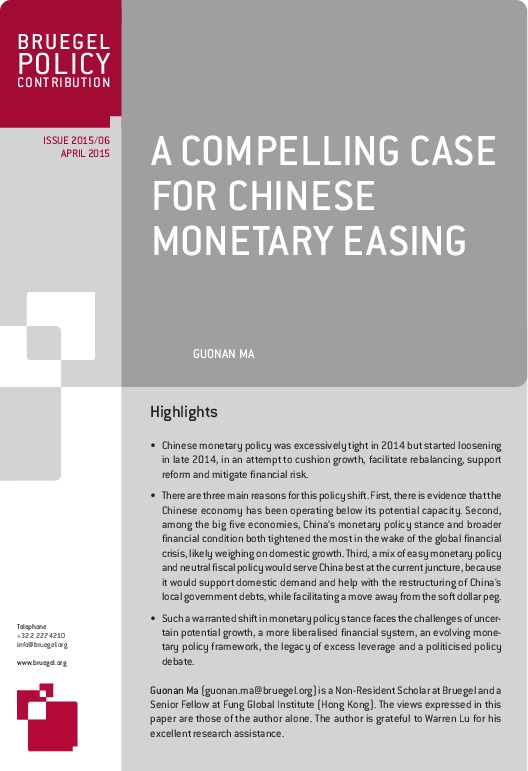Policy Contribution
A compelling case for Chinese monetary easing
In the midst of the heated monetary policy debate, the People’s Bank of China (PBC) since mid-2014 has no doubt started loosening its monetary policy, initially tentatively and later more forcefully. Is such a policy shift warranted and desirable?
• Chinese monetary policy was excessively tight in 2014 but started loosening in late 2014, in an attempt to cushion growth, facilitate rebalancing, support reform and mitigate financial risk.
• There are three main reasons for this policy shift. First, there is evidence that the Chinese economy has been operating below its potential capacity. Second, among the big five economies, China’s monetary policy stance and broader financial condition both tightened the most in the wake of the global financial crisis, likely weighing on domestic growth. Third, a mix of easy monetary policy and neutral fiscal policy would serve China best at the current juncture, because it would support domestic demand and help with the restructuring of China’s local government debts, while facilitating a move away from the soft dollar peg.
• Such a warranted shift in monetary policy stance faces the challenges of uncertain potential growth, a more liberalised financial system, an evolving monetary policy framework, the legacy of excess leverage and a politicised policy debate.











